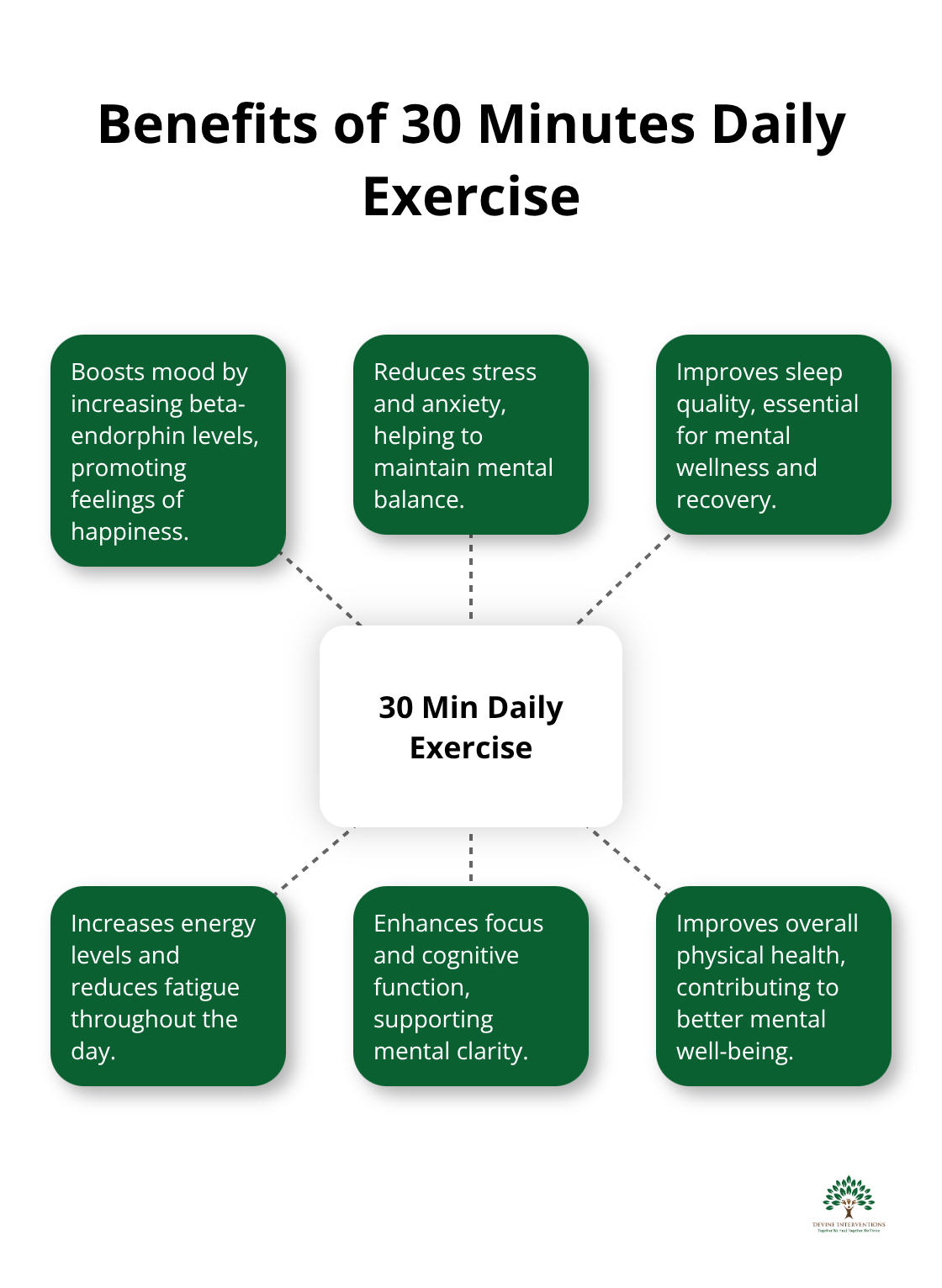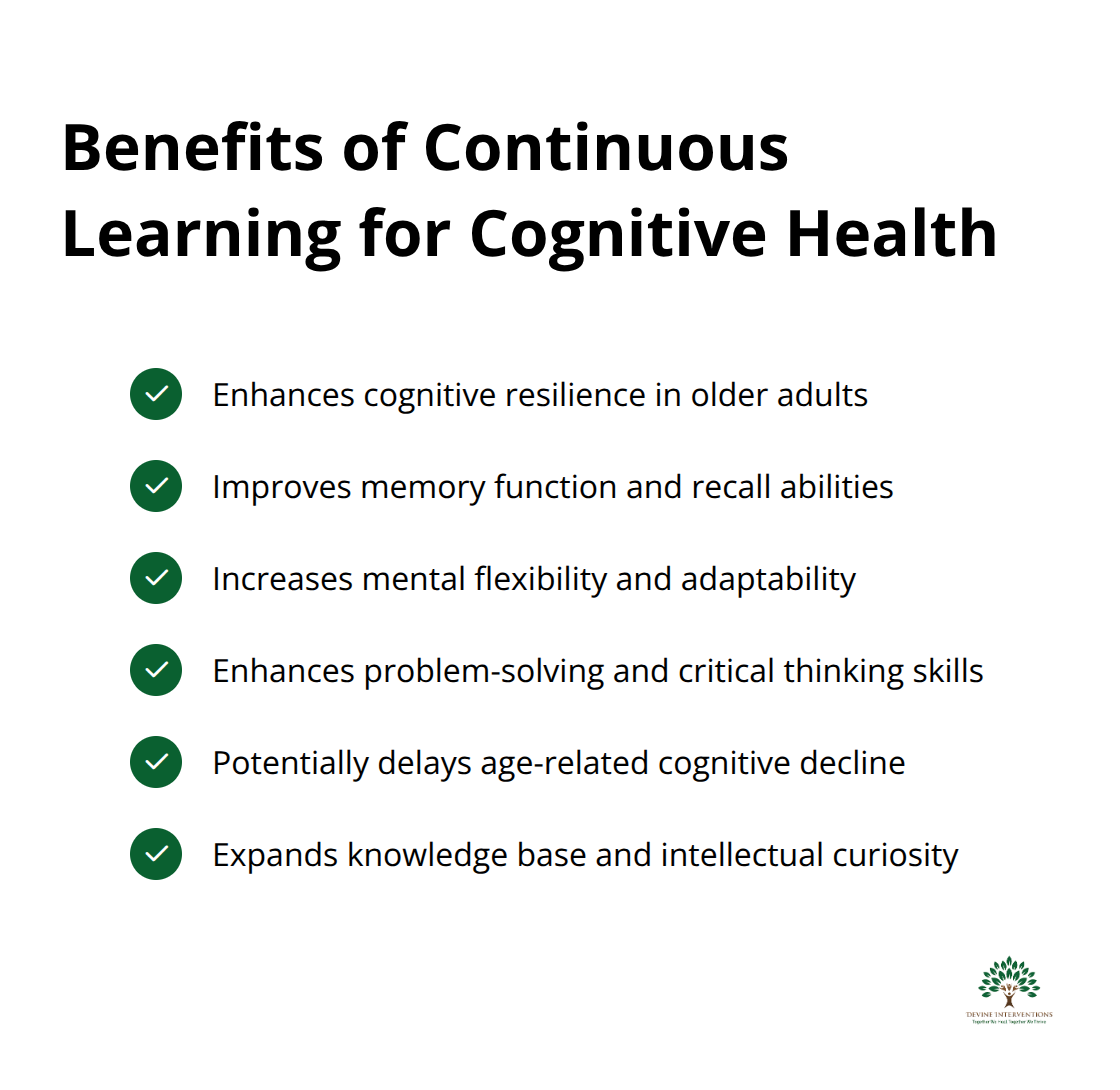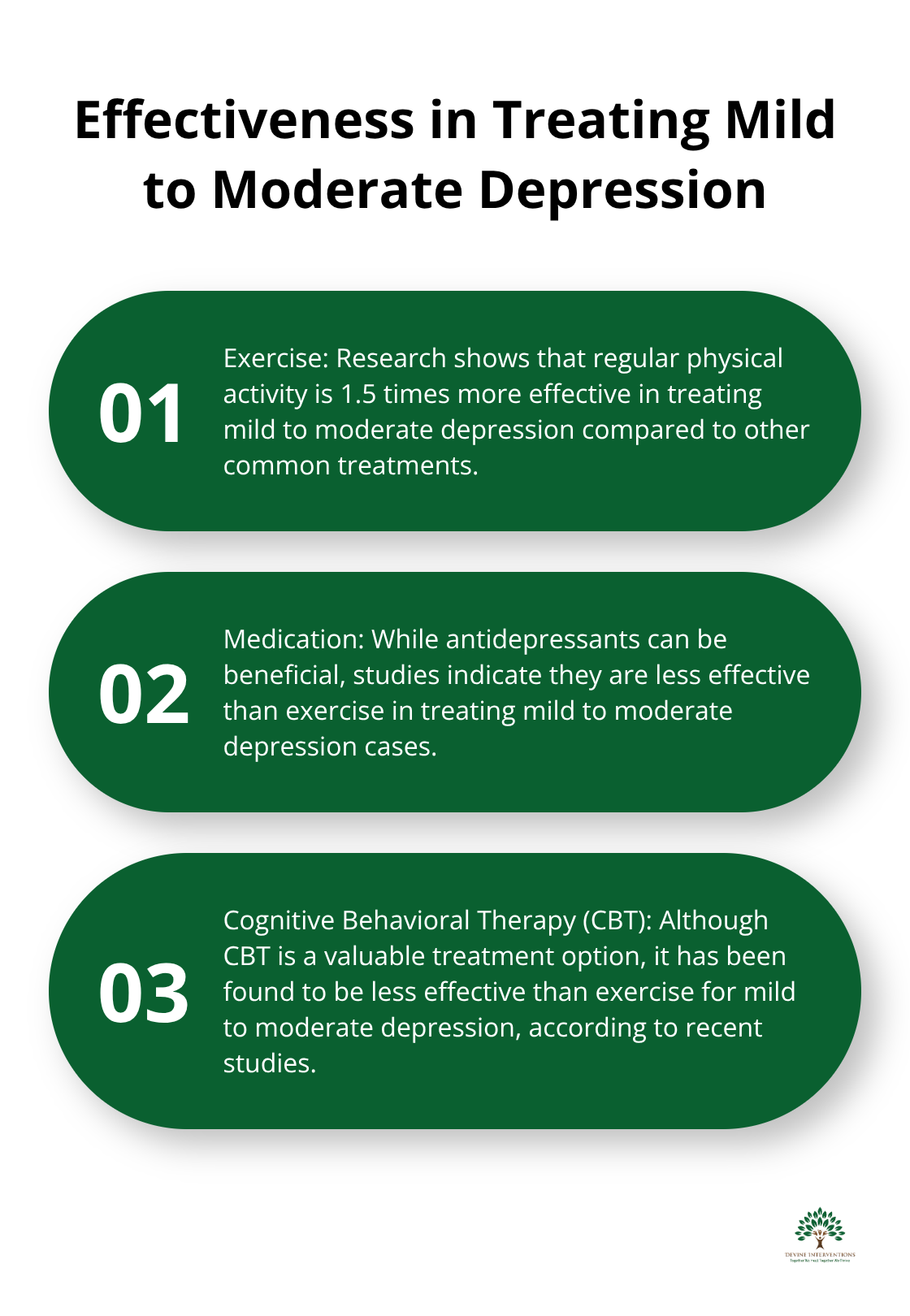Mental and intellectual wellness are key to a fulfilling life. At Devine Interventions, we understand the challenges many face in maintaining a healthy mind and sharp intellect.
This blog post offers practical strategies to boost your mental well-being and enhance your cognitive abilities. We’ll explore simple yet effective techniques you can easily incorporate into your daily routine.
How to Boost Your Mental Wellness
Mental wellness forms the cornerstone of a fulfilling life. At Devine Interventions, we understand the challenges many face in maintaining a healthy mind. Let’s explore practical strategies you can implement today to enhance your overall well-being.
The Power of Mindfulness
Mindfulness isn’t just a trend – it’s a powerful tool for mental health. Start with a five-minute daily practice of focused breathing. Set a timer, find a quiet spot, and observe your breath. This simple technique can reduce stress and improve focus. As you become comfortable, increase the duration gradually.
Sleep: Your Mental Health Ally
Quality sleep is essential for mental wellness. Try to get 7-9 hours per night. Create a bedtime routine: dim the lights an hour before bed, avoid screens, and read a book. If sleep troubles persist, consider reaching out to mental health professionals (like those at Devine Interventions) for personalized strategies.
Nourish Your Body and Mind
Your diet directly impacts your mental state. Include omega-3 rich foods (like salmon and walnuts) in your meals – they’re linked to improved mood and cognitive function. Limit processed foods and excessive caffeine, which can contribute to anxiety. A balanced diet supports a balanced mind.
Move Your Body, Calm Your Mind
Physical exercise is a powerful mood booster. Try to incorporate 30 minutes of moderate activity into your daily routine. This could be a brisk walk, a bike ride, or a dance session in your living room. Regular exercise increases beta-endorphin, which can increase feelings of happiness and reduce feelings of pain.

Connect with Others
Social connections play a vital role in mental wellness. Make an effort to reach out to friends and family regularly. Join a club or group that aligns with your interests. If you’re struggling to make connections, consider group therapy sessions (which many mental health providers offer) as a way to build social skills in a supportive environment.
These strategies are just the beginning of your journey towards improved mental wellness. Remember, seeking professional help is a sign of strength, not weakness. If you find yourself needing additional support, don’t hesitate to reach out to mental health experts who can provide personalized guidance and care.
Now, let’s explore how you can enhance your intellectual capacity to complement your mental wellness journey.
Sharpening Your Mind: Practical Steps for Intellectual Growth
Expand Your Literary Horizons
Reading not only entertains but also offers profound benefits, including enhancing memory and vocabulary, reducing stress, and improving empathy. Set a goal to read one book a month, alternating between fiction and non-fiction. This practice exposes you to diverse thoughts and writing styles. If you typically read self-help books, try a historical novel next. Local libraries often have book clubs, which can add a social element to your reading habit.
Challenge Your Problem-Solving Skills
Puzzles and games can improve cognitive function. Sudoku, crosswords, and jigsaw puzzles are excellent options. Websites offer brain training games designed by neuroscientists. Try to spend 15 minutes a day on these activities. You might notice improvements in your memory and problem-solving skills over time.
Embrace Your Creative Side
Creativity isn’t just for artists. Creative activities can boost your mood and cognitive flexibility. Try painting, writing, or crafting. Adult coloring books provide a simple way to start. Set aside time each week for a creative project (even if it’s just 30 minutes). The goal is to enjoy the process, not to create a masterpiece.
Cultivate a Daily Learning Habit
Make learning part of your daily routine. Continuous learning can significantly enhance cognitive resilience in older adults and promote lifelong cognitive health. Online platforms offer free courses from top universities. Pick a topic that interests you (whether it’s ancient history or modern technology). Watch one lecture or complete one lesson each day. This consistent exposure to new information can keep your mind engaged and curious.

Explore Language and Music
Learning a new language or musical instrument can significantly enhance cognitive function. Start with basic phrases in a foreign language or simple scales on an instrument. Dedicate 20 minutes daily to this new skill. The process of mastering something unfamiliar challenges your brain in unique ways, promoting neuroplasticity and mental agility.
Intellectual growth plays a vital role in overall mental wellness. These strategies offer a starting point for enhancing your cognitive abilities. However, integrating intellectual stimulation with broader mental health practices often yields the best results. Let’s explore how the mind and body work together to create a foundation for holistic well-being.
How Your Body Shapes Your Mind
The connection between physical health and mental well-being is clear. Physical health significantly impacts mental wellness outcomes. Let’s explore practical ways to use this mind-body connection for better overall health.
Movement as Medicine
Physical activity boosts your mood and mental health. Exercise is 1.5 times more effective than either medication or cognitive behavioral therapy in treating mild to moderate depression. Start small: take a 10-minute walk during your lunch break. Work up to 30 minutes of moderate exercise five times a week. Join a local walking group or fitness class for extra motivation and social interaction.

The Calming Power of Breath
Deep breathing exercises help manage stress and anxiety. Dedicating 20-30 minutes each day to practices like deep breathing, meditation, or progressive muscle relaxation can significantly enhance well-being. Try this: Sit comfortably, close your eyes, and inhale slowly through your nose for four counts. Hold for two counts, then exhale through your mouth for six counts. Repeat for five minutes. Add this practice to your daily routine, perhaps right after waking up or before bed.
Food for Thought
Your diet directly affects your cognitive function and mood. A study in the American Journal of Clinical Nutrition found that a diet rich in fruits, vegetables, and omega-3 fatty acids can reduce depression risk by up to 30%. Add one extra serving of vegetables to your daily meals. Replace processed snacks with nuts or fruits. (If you’re unsure about dietary changes, consult a nutritionist or your healthcare provider for personalized advice.)
The Yoga-Mind Connection
Yoga combines physical postures, breathing techniques, and meditation to promote mental and physical well-being. Research published in the Journal of Alternative and Complementary Medicine shows that yoga can reduce symptoms of anxiety and depression. Try a beginner’s yoga class or follow online tutorials. (Even 10 minutes of daily practice can make a difference.)
Sleep: Your Brain’s Best Friend
Quality sleep is essential for mental wellness. The National Sleep Foundation recommends 7-9 hours of sleep per night for adults. Poor sleep can lead to increased stress, anxiety, and depression. Create a bedtime routine: dim lights an hour before bed, avoid screens, and read a book. If sleep troubles persist, consider reaching out to mental health professionals for personalized strategies.
Final Thoughts
Mental and intellectual wellness form the foundation of a fulfilling life. We at Devine Interventions understand the importance of nurturing both aspects for overall well-being. Our approach combines proven strategies with personalized care to help you achieve lasting positive change.
Small, consistent steps lead to significant improvements in mental and intellectual health. You can start by incorporating one new habit, such as daily mindfulness practice or regular reading, into your routine. These actions will contribute to enhanced cognitive function, emotional stability, and overall life satisfaction.
We invite you to take the first step towards a healthier, more vibrant you today. Our team of experts at Devine Interventions is ready to provide comprehensive mental health support tailored to your unique needs. Your journey to improved mental and intellectual wellness starts here.







